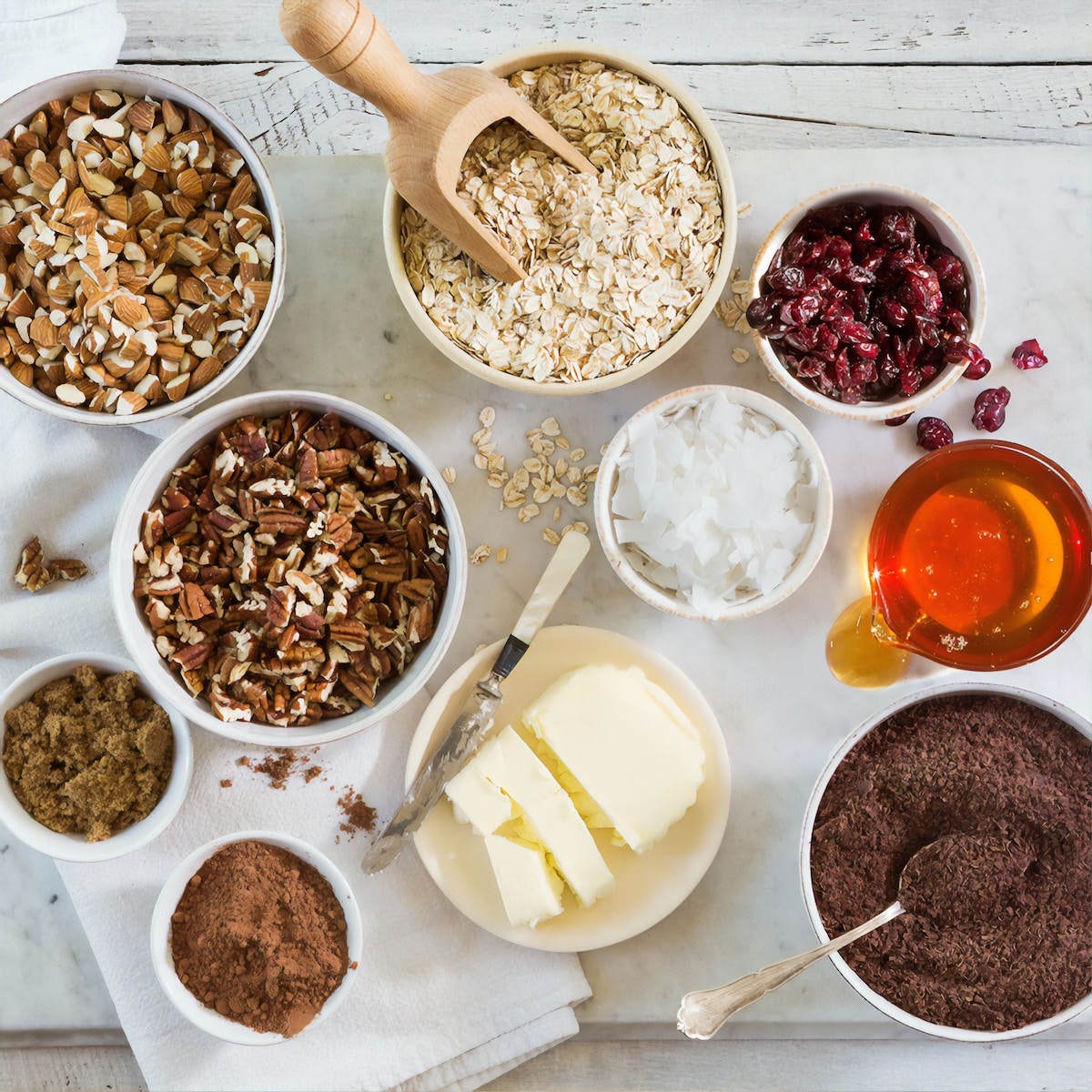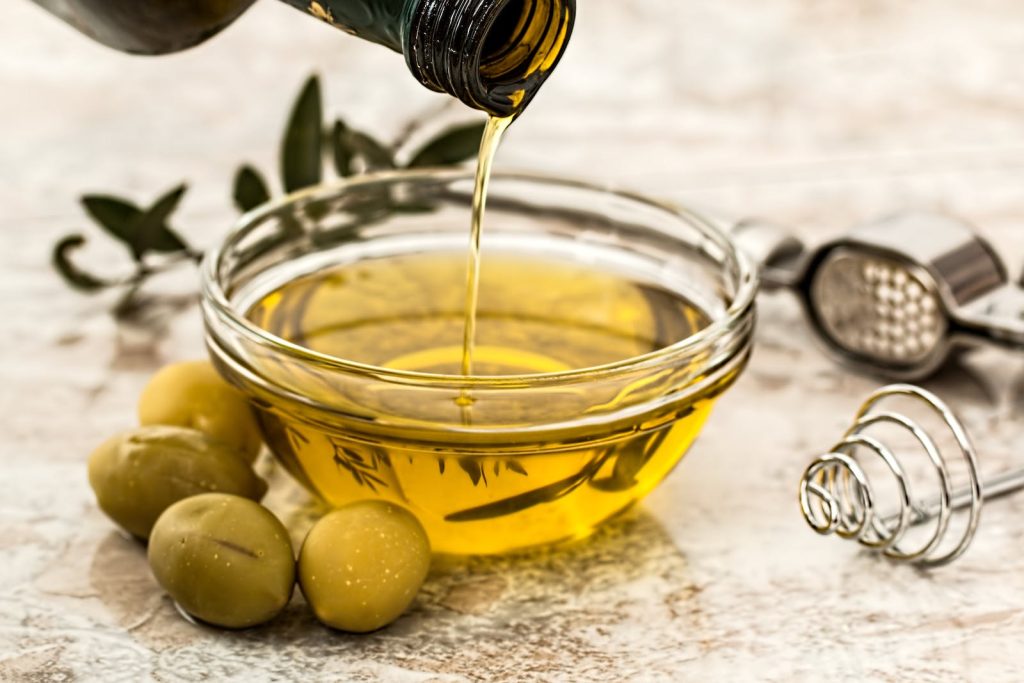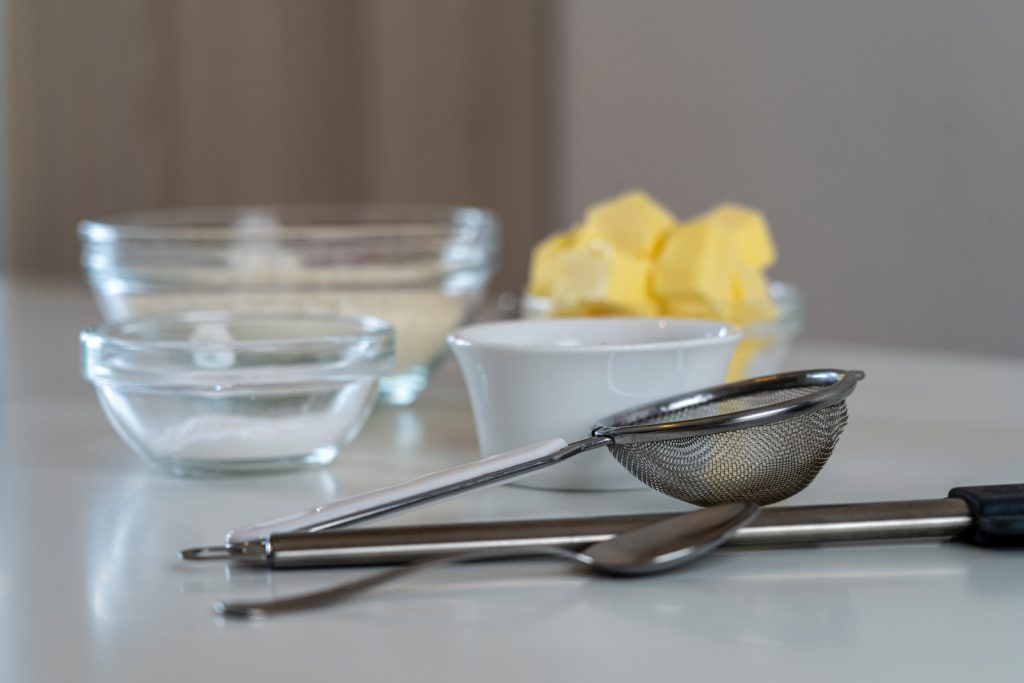A Health Comparison of Butter or Olive Oil
Are you curious about which cooking fat is healthier: butter or olive oil? This is a question that has been debated for years, and with good reason. Both butter and olive oil are commonly used in cooking and baking, and each has its own unique benefits and drawbacks. In this article, we will explore the health benefits and nutritional differences between butter and olive oil to help you make an informed decision about which one to use in your cooking.
Butter is a dairy product made from churning cream or milk. It is high in saturated fat, which has been linked to an increased risk of heart disease and other health problems. However, butter is also a useful source of vitamins A, D, E, and K, as well as calcium and phosphorus. On the other hand, olive oil is a plant-based oil that is rich in monounsaturated and polyunsaturated fats, which have been shown to have numerous health benefits. Olive oil is also high in antioxidants, which can help protect against oxidative damage and inflammation in the body.
So, which one is healthier: butter or olive oil? The answer is not clear-cut,
as both have their own unique benefits and drawbacks. However, by understanding the nutritional differences between the two, you can make an informed decision about which one to use in your cooking and baking.
Butter and Olive Oil: A Brief Overview

When it comes to cooking and baking, butter and olive oil are two of the most used ingredients. Both have their unique flavors and textures, but they also have different nutritional profiles. Here’s a brief overview of the differences between butter and olive oil:
Butter
Butter is a dairy product made from churning cream or milk. It has a rich, creamy flavor and is commonly used in baking, cooking, and as a spread. Butter is high in saturated fat, which can increase your risk of heart disease and other health problems when consumed in excess. However, it also contains vitamins A, D, and E, as well as some trace minerals.
Olive Oil
Olive oil is a staple ingredient in Mediterranean cuisine and is made by pressing whole olives. It has a fruity, slightly bitter taste and is commonly used in cooking, salad dressings, and as a dip for bread. Olive oil is high in monounsaturated fats, which can help lower your risk of heart disease and other health problems. It also contains antioxidants and anti-inflammatory compounds.
Comparison
Here’s a quick comparison of the nutritional profiles of butter and olive oil:
| Nutrient | Butter (1 tbsp) | Olive Oil (1 tbsp) |
|---|---|---|
| Calories | 102 | 119 |
| Total Fat | 12 g | 14 g |
| Saturated Fat | 7.5 g | 2 g |
| Monounsaturated Fat | 3 g | 10 g |
| Polyunsaturated Fat | 0.5 g | 1.5 g |
| Vitamin A | 355 IU | 0 IU |
| Vitamin E | 0.3 mg | 1.9 mg |
As you can see, butter is higher in calories and saturated fat, while olive oil is higher in monounsaturated fat and vitamin E. While both can be used in cooking and baking, it’s important to consider the nutritional profile of each when making your choices.
Nutritional Composition of Butter
When it comes to comparing the nutritional composition of butter and olive oil, it’s important to understand what each has to offer. Butter is a dairy product made by churning cream or milk, while olive oil is made from pressing olives. Here’s a breakdown of the nutritional composition of butter:
- Fat content: Butter is primarily made up of fat, with approximately 80% of its calories coming from fat. It contains both saturated and unsaturated fats, with saturated fats making up about half of the total fat content.
- Vitamins: Butter is a useful source of vitamin A, with one tablespoon providing about 11% of the recommended daily intake. It also contains lesser amounts of vitamin D, vitamin E, and vitamin K.
- Minerals: Butter is a reliable source of calcium, with one tablespoon providing about 1% of the recommended daily intake. It also contains lesser amounts of iron, magnesium, phosphorus, and potassium.
- Cholesterol: Butter is high in cholesterol, with one tablespoon containing about thirty-one milligrams. This is approximately 10% of the recommended daily intake.
Overall, while butter does contain some beneficial nutrients, it is high in saturated fat and cholesterol, which can have negative impacts on your health if consumed in excess. It’s important to consume butter in moderation as part of a balanced diet.
Nutritional Composition of Olive Oil
If you are looking for a healthier alternative to butter, olive oil can be a great option. Olive oil is a staple in the Mediterranean diet and has been praised for its health benefits. Here is a breakdown of the nutritional composition of olive oil:
Calories
Olive oil is high in calories, with one tablespoon containing around 120 calories. However, it is important to note that olive oil is a healthy fat and can be part of a balanced diet.
Fat
Olive oil is a reliable source of monounsaturated fat, which is considered a healthy fat. One tablespoon of olive oil contains around fourteen grams of fat, with only 2 grams being saturated fat.
Vitamins and Minerals
Olive oil is a useful source of vitamin E, which is an antioxidant that helps protect your cells from damage. It also contains lesser amounts of vitamin K and vitamin A.
Other Compounds
Olive oil is rich in polyphenols, which are plant compounds that have antioxidant properties. These compounds have been linked to various health benefits, including reduced inflammation and lower risk of chronic diseases.
In summary, olive oil is a healthy fat that can be a great alternative to butter. It is high in calories and fat, but it is also rich in vitamins, minerals, and other beneficial compounds. Incorporating olive oil into your diet can help improve your overall health.
Comparing Saturated and Unsaturated Fats
When it comes to choosing between butter and olive oil, one of the key factors to consider is the type of fat they contain. Butter is a source of saturated fat, while olive oil is a source of unsaturated fat. Here’s how they compare:
Saturated Fat
Saturated fat is typically solid at room temperature and is found in animal products such as butter, cheese, and meat. According to the Mayo Clinic, a diet high in saturated fat can raise your LDL (bad) cholesterol levels, which can increase your risk of heart disease and stroke.
Butter is a particularly high source of saturated fat. In fact, it contains 183% more saturated fat than olive oil, according to Food Struct. This means that if you’re looking to reduce your intake of saturated fat, you may want to limit your consumption of butter.
Unsaturated Fat
Unsaturated fat, on the other hand, is typically liquid at room temperature and is found in plant products such as olive oil, nuts, and seeds. According to Verywell Health, a diet high in unsaturated fat can help lower your LDL (bad) cholesterol levels and reduce your risk of heart disease and stroke.
Olive oil is a particularly high source of unsaturated fat. It contains more unsaturated fat than butter, according to Food Struct. This means that if you’re looking to increase your intake of unsaturated fat, you may want to choose olive oil over butter.
Overall, when it comes to choosing between butter and olive oil, it’s important to consider the type of fat they contain. While butter is a high source of saturated fat, olive oil is a high source of unsaturated fat.
Impact on Heart Health
When it comes to heart health, butter and olive oil have different effects. Here’s what you need to know:
Butter’s Effect on Heart Health
Butter is high in saturated fat, which can raise your LDL (bad) cholesterol levels and increase your risk of heart disease. According to the American Heart Association, you should limit your intake of saturated fat to less than 7% of your daily calories.
One tablespoon of butter contains about 7 grams of saturated fat, which is 35% of your recommended daily intake if you’re following a 2,000-calorie diet. That’s why it’s recommended to use butter in moderation.
Olive Oil’s Effect on Heart Health
Unlike butter, olive oil is a healthy fat that can actually improve your heart health. It’s high in monounsaturated and polyunsaturated fats, which can lower your LDL (bad) cholesterol levels and reduce your risk of heart disease.
According to a systematic review and meta-analysis of butter consumption, substituting 8 grams of olive oil for an equivalent amount of butter was associated with an 8% reduction in the risk of type 2 diabetes.
In addition, olive oil is rich in antioxidants, which can protect your heart from oxidative stress and inflammation. It’s also been shown to improve endothelial function, which is important for blood flow and overall heart health.
To reap the heart-healthy benefits of olive oil, it’s recommended to use it as a replacement for butter and other unhealthy fats in your diet. Aim for about 2 tablespoons of olive oil per day as part of a healthy diet.
Overall, when it comes to heart health, olive oil is a better choice than butter.
Role in Weight Management
When it comes to weight management, both butter and olive oil can play a role in your diet. However, it’s important to keep in mind that both are high in calories and fat, so moderation is key.
Butter and Weight
Butter is a high-calorie food, with approximately 102 calories per tablespoon. It also contains a high amount of saturated fat, which can contribute to weight gain and increase the risk of heart disease. However, butter does contain some beneficial nutrients, such as vitamin A and vitamin K.
If you enjoy the taste of butter, there are ways to incorporate it into your diet without going overboard. For example, you can use a small amount of butter to sauté vegetables or spread a thin layer on whole grain toast.
Olive Oil and Weight
Olive oil is also a high-calorie food, with approximately 120 calories per tablespoon. However, it contains healthy monounsaturated fats, which can help reduce the risk of heart disease and promote weight loss.
Studies have shown that consuming olive oil can increase feelings of fullness and help you eat fewer calories overall. It’s also a great alternative to other oils when cooking, as it has a higher smoke point and can be used at higher temperatures.
Incorporating olive oil into your diet can be as simple as drizzling it over a salad or using it to roast vegetables. However, it’s important to keep in mind that even healthy oils should be consumed in moderation to maintain a healthy weight.
Overall, both butter and olive oil can play a role in a healthy diet. However, when it comes to weight management, it’s important to use them in moderation and incorporate them into a balanced diet that includes plenty of fruits, vegetables, lean protein, and whole grains.
Cooking: Butter Vs Olive Oil
When it comes to cooking, both butter and olive oil have their advantages and disadvantages. Here are some factors to consider:
Smoke Point
Butter has a lower smoke point than olive oil, which means it can burn at lower temperatures. This can be a problem when frying or sautéing at high heat. Olive oil has a higher smoke point, making it a better choice for high-heat cooking.
Flavor
Butter has a rich, creamy flavor that is hard to beat. It can add depth and richness to baked goods, sauces, and other dishes. Olive oil, on the other hand, has a more subtle flavor that can enhance the natural flavors of ingredients without overpowering them.
Nutritional Value
When it comes to nutritional value, olive oil is the clear winner. It is high in monounsaturated fats, which have been shown to improve heart health. Butter, on the other hand, is high in saturated fat, which can raise cholesterol levels and increase the risk of heart disease.
Versatility
Both butter and olive oil can be used in a variety of dishes, but they each have their strengths. Butter is great for baking, sautéing, and making sauces, while olive oil is perfect for roasting vegetables, grilling meats, and making salad dressings.
In conclusion, both butter and olive oil have their place in the kitchen. Consider the smoke point, flavor, nutritional value, and versatility when choosing which one to use in your next dish.
Final Thoughts: Which is Healthier?
When it comes to the debate between butter and olive oil, the answer is not so simple. Both have their benefits and drawbacks, and the decision ultimately comes down to personal preference and dietary needs.
If you are looking for a healthier option, olive oil is considered the better choice due to its higher percentage of healthy fats, particularly monounsaturated fats. Butter, on the other hand, is mostly made up of saturated fat, which can have negative effects on heart health if consumed in excess.
However, butter can be a reliable source of certain vitamins, such as vitamin A and vitamin B12, that are not as abundant in olive oil. Additionally, butter has a richer flavor that some people prefer over the taste of olive oil.
When choosing between the two, it is important to consider your dietary needs and goals. If you are following a low-carb diet, olive oil may be the better option due to its lower-carb content. If you are looking to increase your intake of certain vitamins, butter may be the way to go.
Overall, both butter and olive oil can be part of a healthy diet when consumed in moderation. It is important to choose high-quality, minimally processed versions of both and to use them in appropriate amounts to avoid negative health effects.
Conclusion
In summary, both butter and olive oil have their pros and cons when it comes to health benefits. Butter is a saturated fat, which has been linked to an increased risk of heart disease, but it also contains important nutrients like vitamins A and D. On the other hand, olive oil is a monounsaturated fat, which has been shown to have heart-protective benefits, but it is also high in calories.
When it comes to cooking, it’s important to consider the smoke point of each oil. Butter has a lower smoke point than olive oil, which means it can burn at hot temperatures. Olive oil, on the other hand, has a higher smoke point and is better suited for high-heat cooking methods like sautéing and frying.
If you’re looking to reduce your saturated fat intake, replacing butter with olive oil is a desirable choice. However, it’s important to keep in mind that olive oil is still high in calories, so it should be used in moderation.
The choice between butter and olive oil comes down to personal preference and dietary needs. Both can be part of a healthy diet when consumed in moderation and as part of a balanced meal plan.
Elizabeth Redd: I am a passionate advocate for Health and Healing, dedicated to empowering individuals to live their best lives.
As the founder and publisher of Health and Healing, I have established myself as a guiding force in the wellness industry.
I am committed to providing the latest research, holistic approaches, and inspiring stories to open new possibilities for your health and healing journey.
Learn more about Elizabeth and Join Us at Health and Healing. Also, check out My About Page.







0 Comments